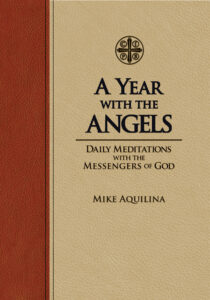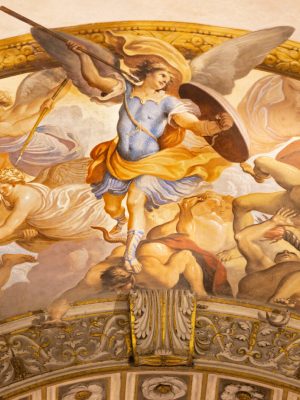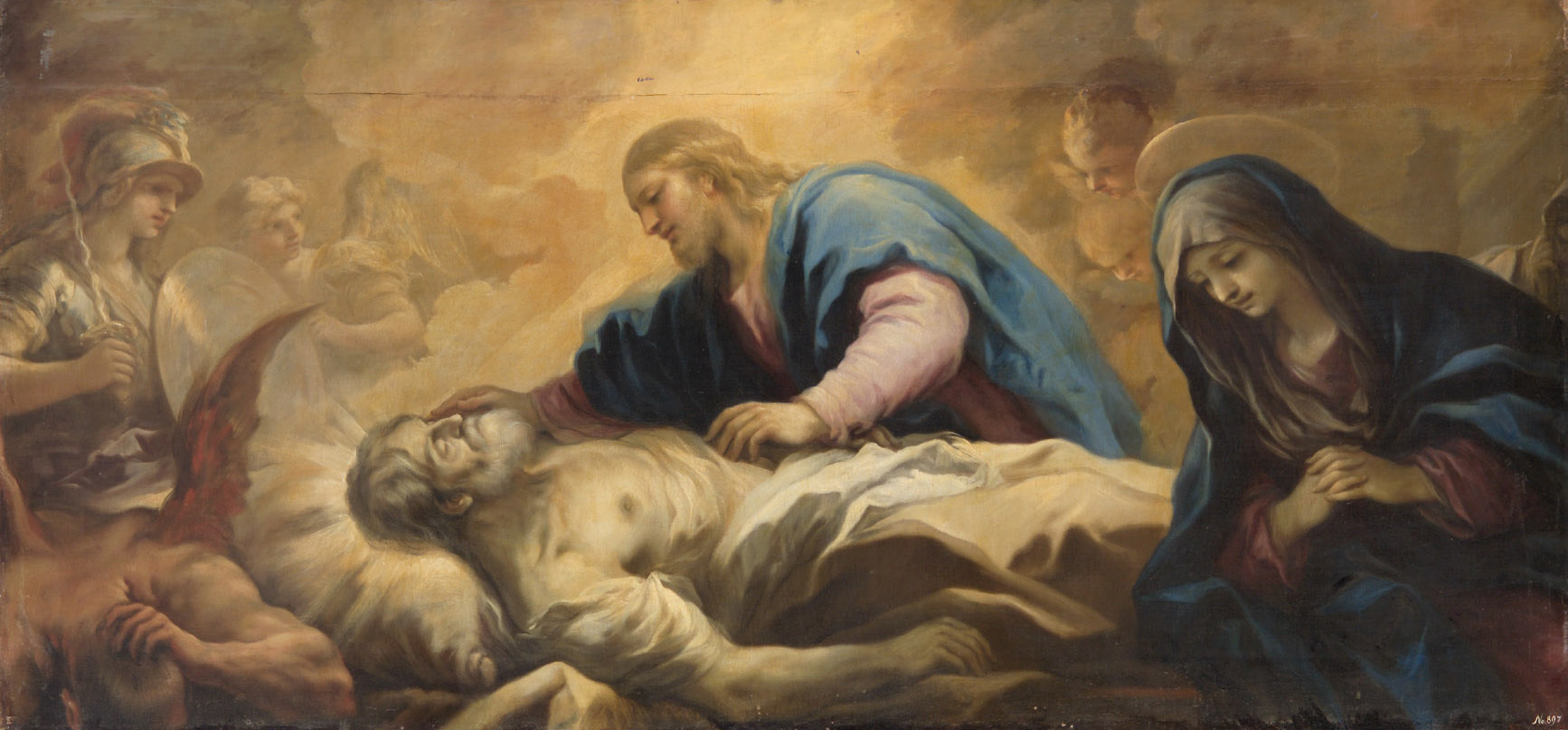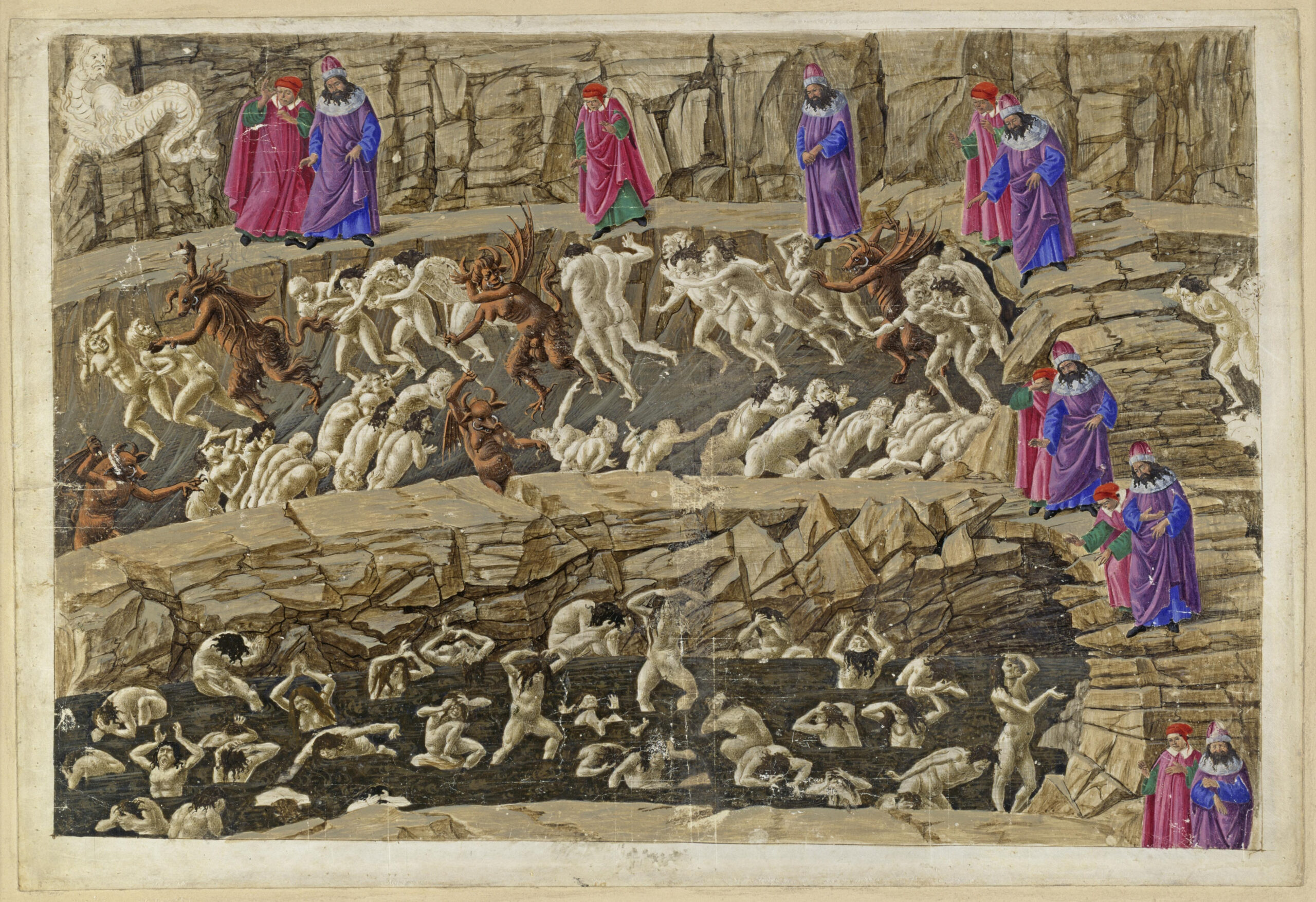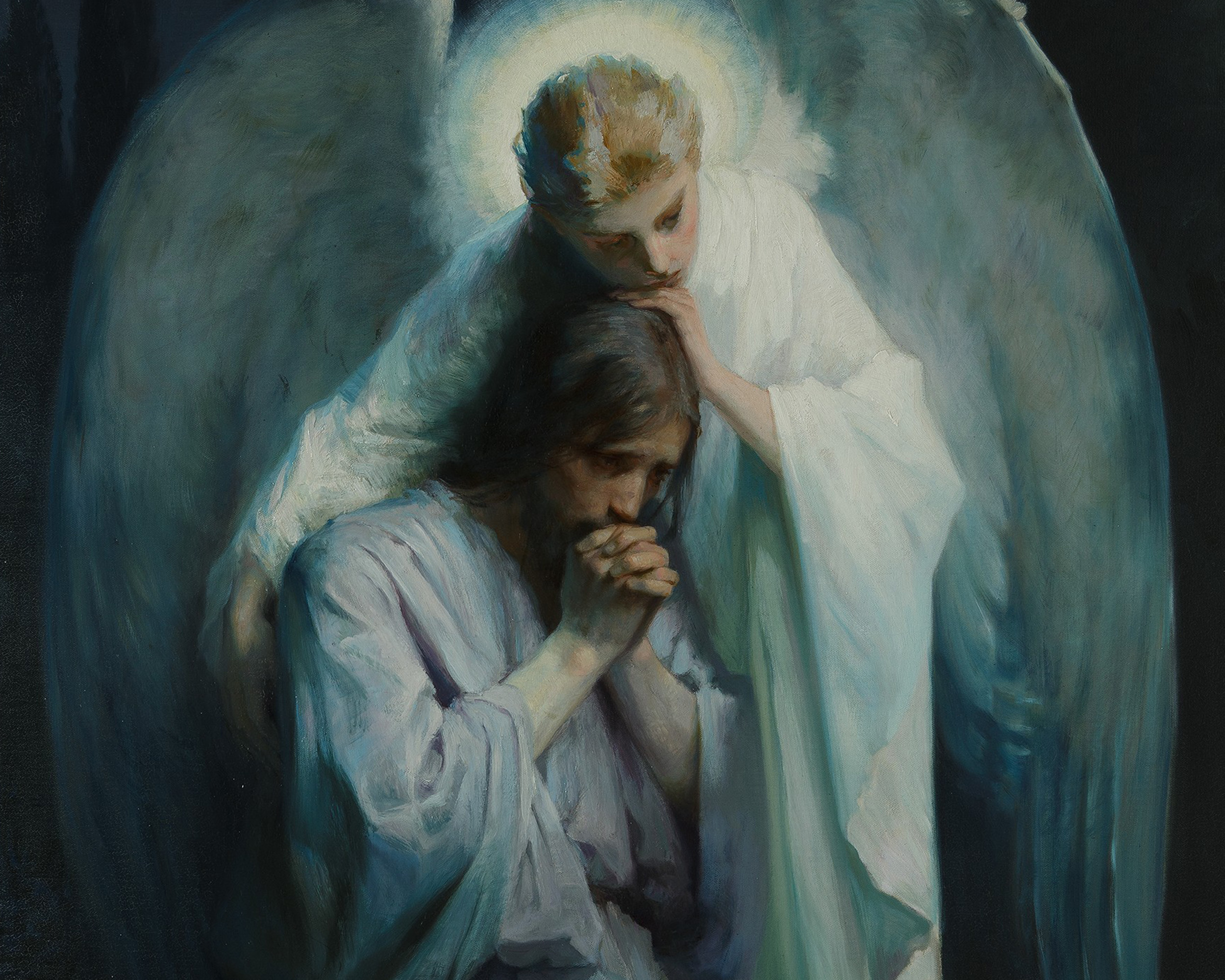Where did the devil’s malice, his lying and deceiving mankind and slandering God, come from? Certainly not from God. He made the angel good, as he did all his good works. In fact, before he became the devil, he was known as the wisest of all creation, and wisdom is not evil.
As a spirit, he was created with free will—for God certainly would not fail to give that kind of liberty to a being who was meant to be next to God himself.
When God condemned him, God bore witness that the devil had left behind the nature in which he was created, by lusting after the wickedness that had sprung up by itself in him. At the same time, by allowing him some room for his schemes, God acted in accordance with his own good purpose. In that way he made room for a conflict in which mankind might crush his enemy with that same free will that had fallen victim to the enemy (which proves, by the way, that the fault was his own, not God’s), and thus worthily gain back his salvation through victory. Likewise the devil’s punishment is more bitter, because he is conquered by the one he had formerly injured.
Thus God is shown to be even more good, because he waits for man to come back from his present life to a more glorious paradise, where he will have the right to take the fruit of the tree of life.
But how are the demons evil if they are created by God? For the Good brings forth and sustains good things—but, someone might say, we call the demons evil.
But we call them “evil” not because of what they are, for they come from the Good, and were created with a good essence. We call them evil from what they are not, because they did not have the strength, as Scripture tells us, to keep their original condition.
What do we mean when we say that demons become evil, except that they have fallen out of the habit of working for divine things? If the demons were evil by nature, they would always be evil—but evil is unstable, so if they were always in the same condition, they would not be evil. To be the same all the time is a characteristic of the Good. But if they are not always evil, they are not evil by nature, but by straying from the good qualities of angels.
Demons do not altogether lack a share in what is good. They exist, and they live, and they think, and they have a sort of movement of aspiration. But we call them “evil” because of their weakness in what they do. The evil is a turning away and stepping out of things appropriate for them; it is missing the mark, imperfection and impotence, a weakness and a departure, and a falling away from the power that preserves their integrity.
But the logical rule doesn’t apply in these two opposites that we call “good” and “evil.” The weather can’t be both dark and light at the same time. Food or drink can’t be sweet and sour at the same time. An object can’t be both white and black at the same time and in the same place. It can’t be misshapen and shapely at the same time. We see this rule in almost all pairs of opposites: two opposite things cannot coexist in the same thing.
No one says that good and evil aren’t opposites. But, nevertheless, not only can they coexist, but evil can’t exist at all without good, or in a thing that isn’t good. On the other hand, good can exist without evil: a person or an angel could exist and not be wicked, but there cannot be wickedness except in a person or an angel. It’s good to be a person, and it’s good to be an angel. But it’s evil to be wicked.
So these two opposites coexist. If there were no good in what is evil, then the evil just could not exist: it would have no way of existing. There would be no source of corruption, because corruption is only taking away the good.
Evils have their source in what is good, and unless they are parasites on something good they are nothing. There is no other source from which an evil thing can come into existence.
If this is true, then a thing is unquestionably good insofar as it is a being. If it’s an incorruptible being, it’s a great good. But even if it is corruptible, it still can’t exist except as a characteristic of something good. Corruption can only do damage by corrupting something good.
This article is taken from a chapter in A Year with the Angels by Mike Aquillina, which is available from TAN Books.
